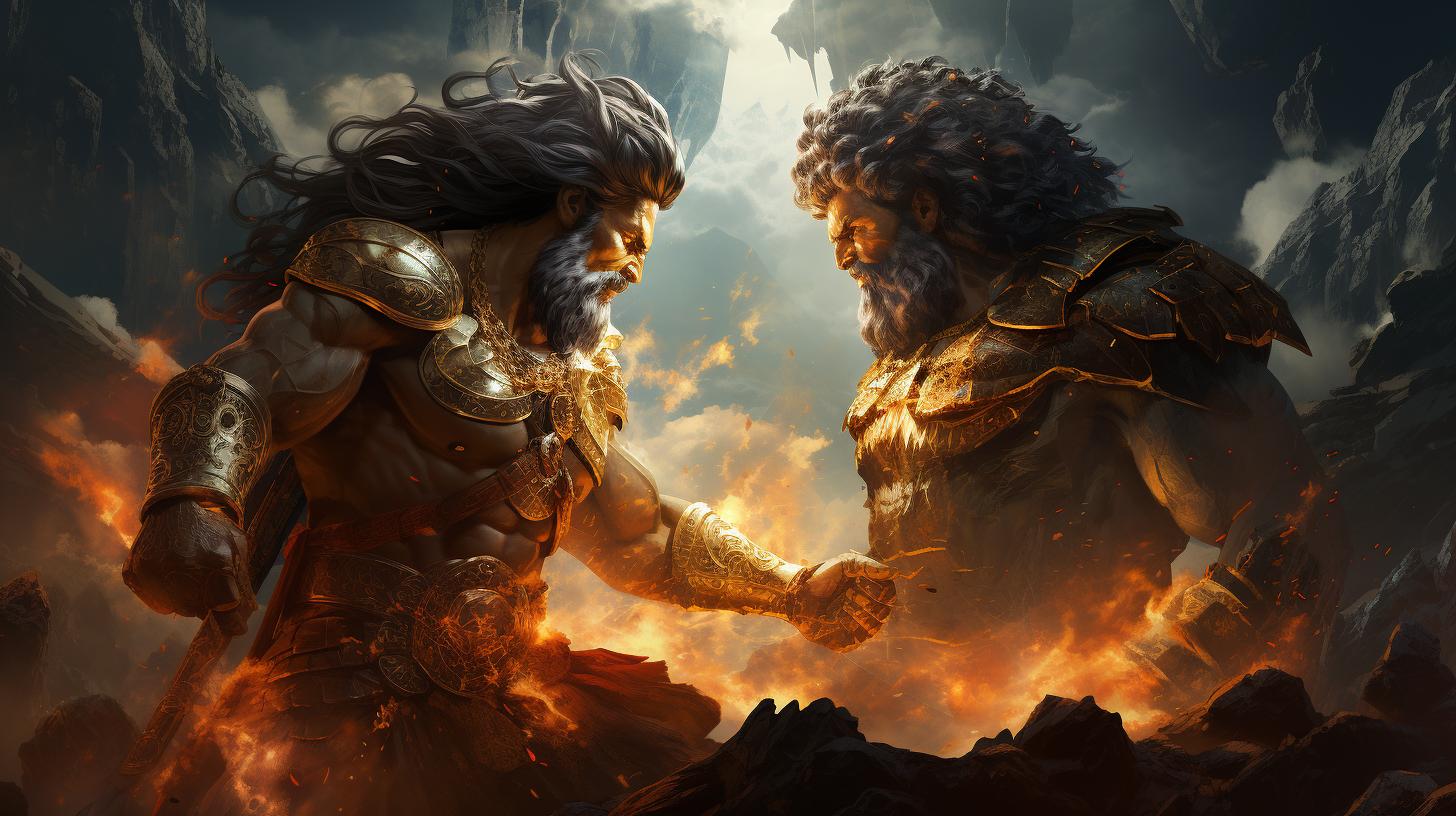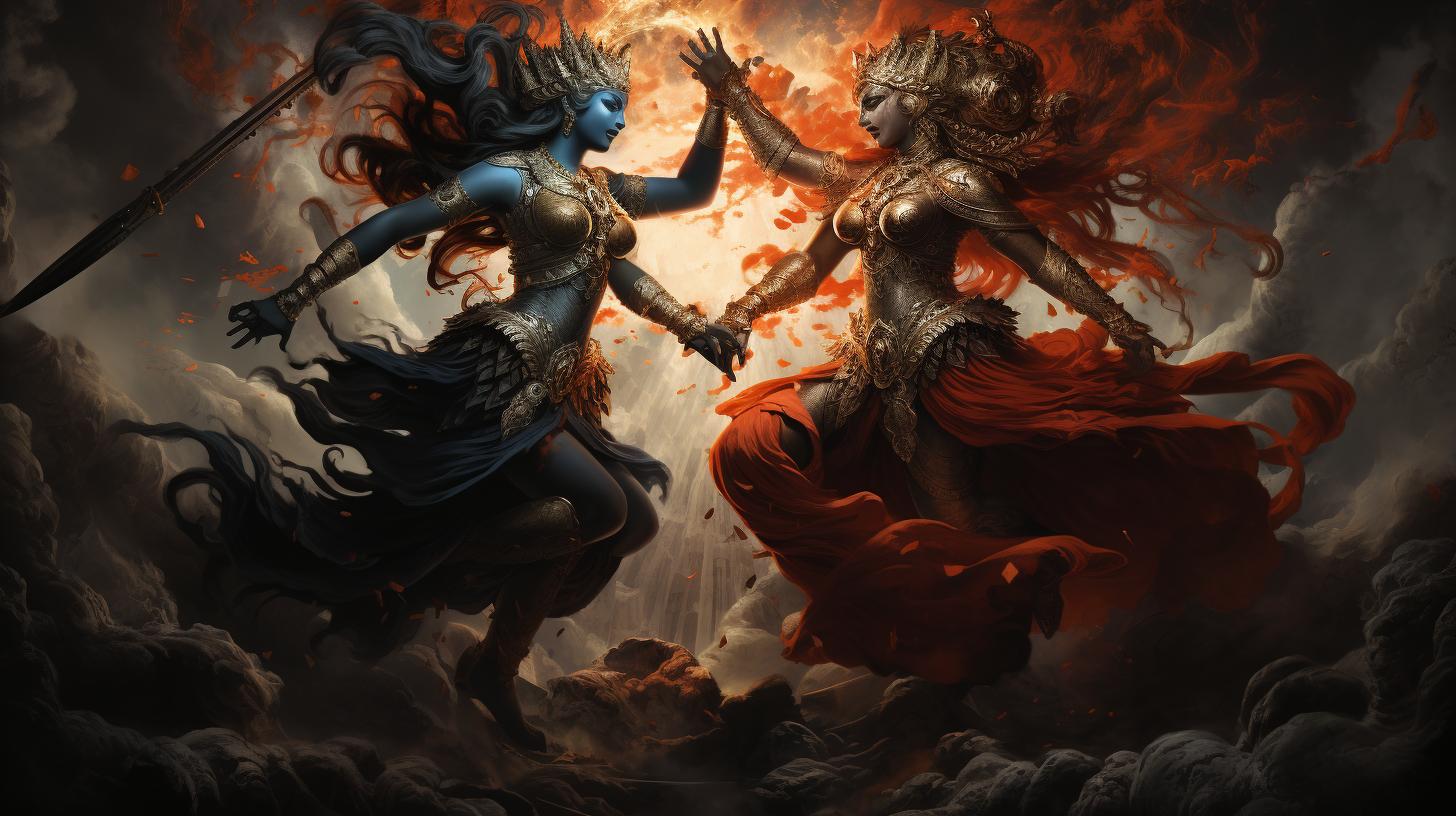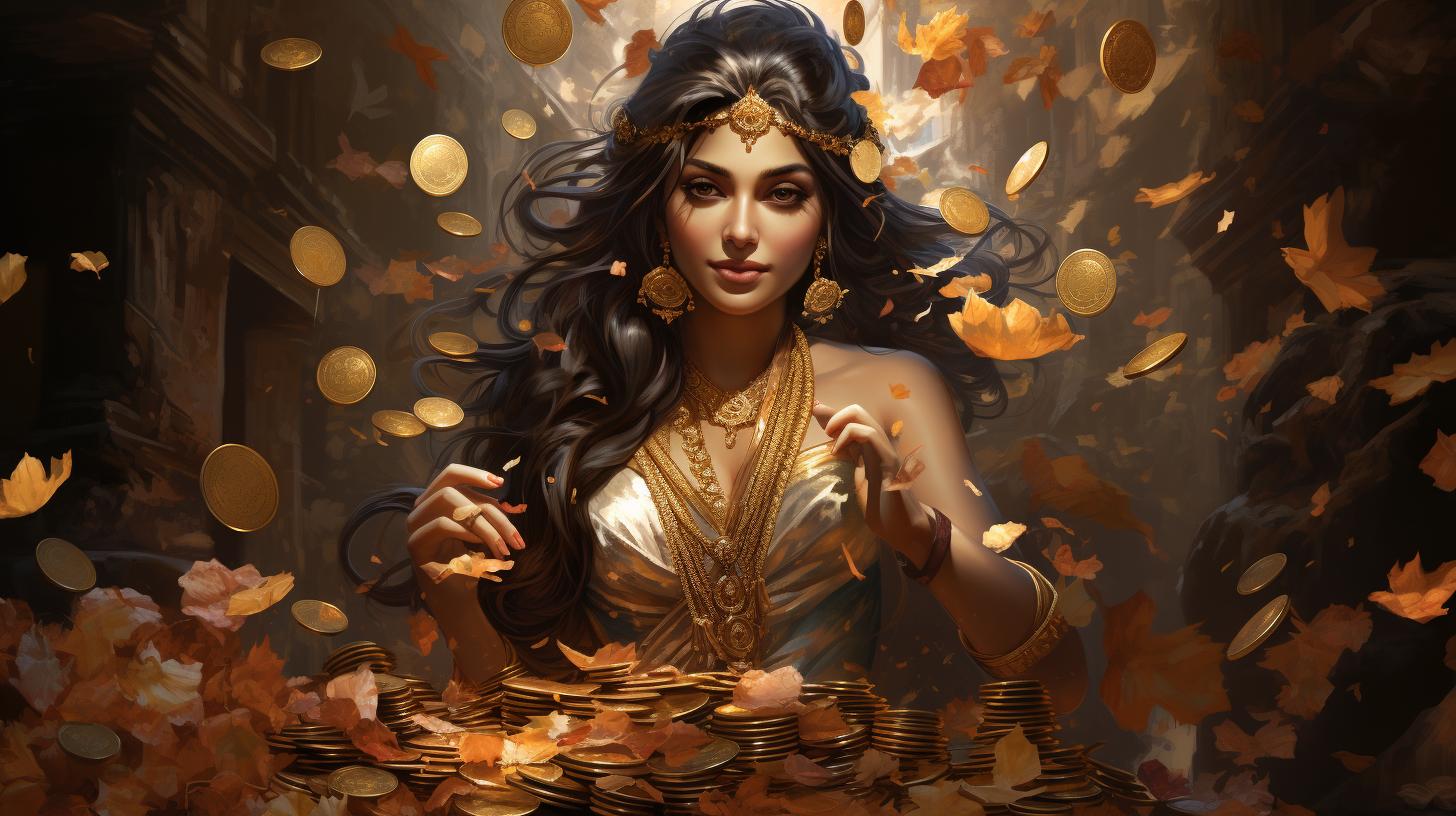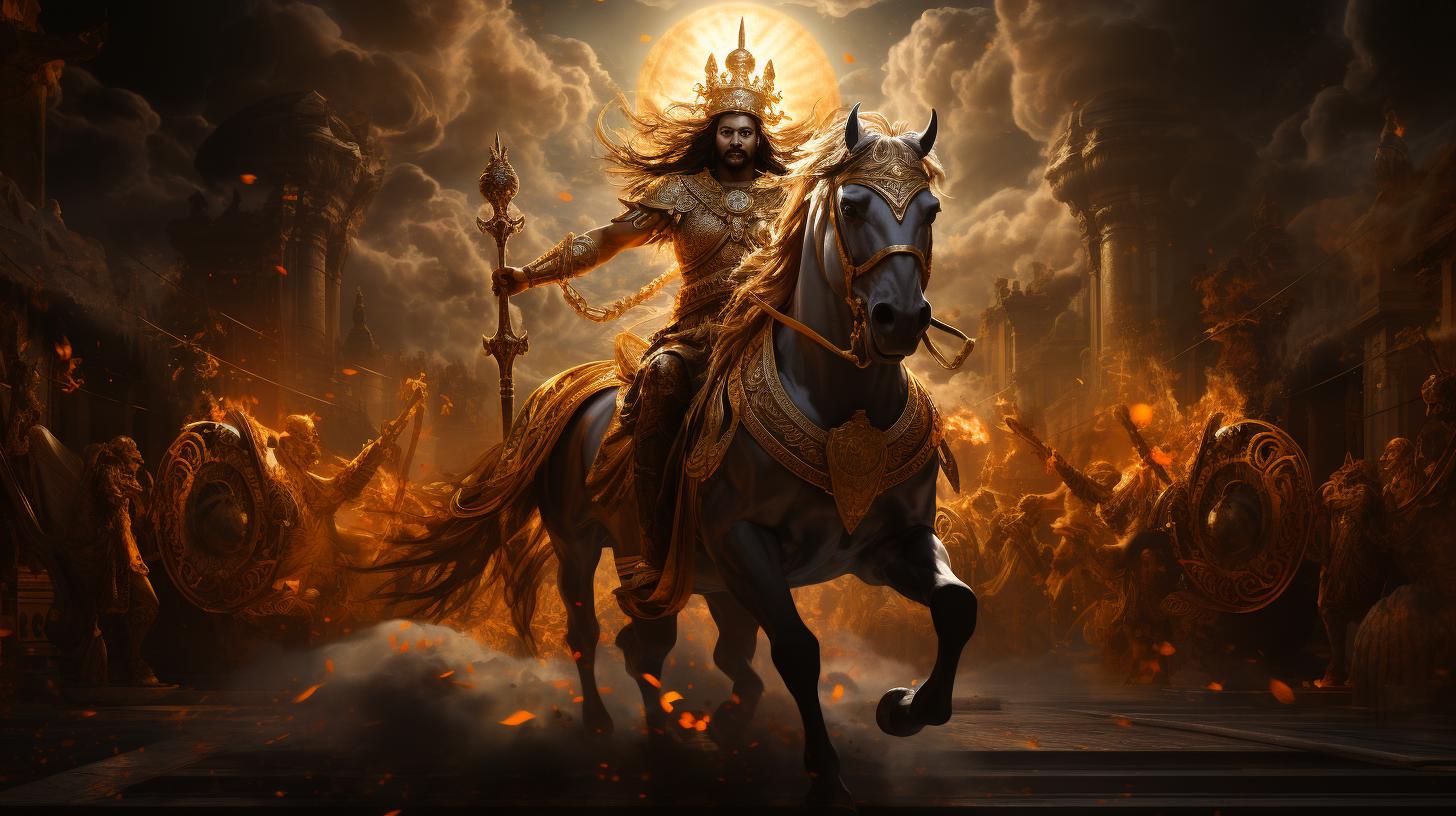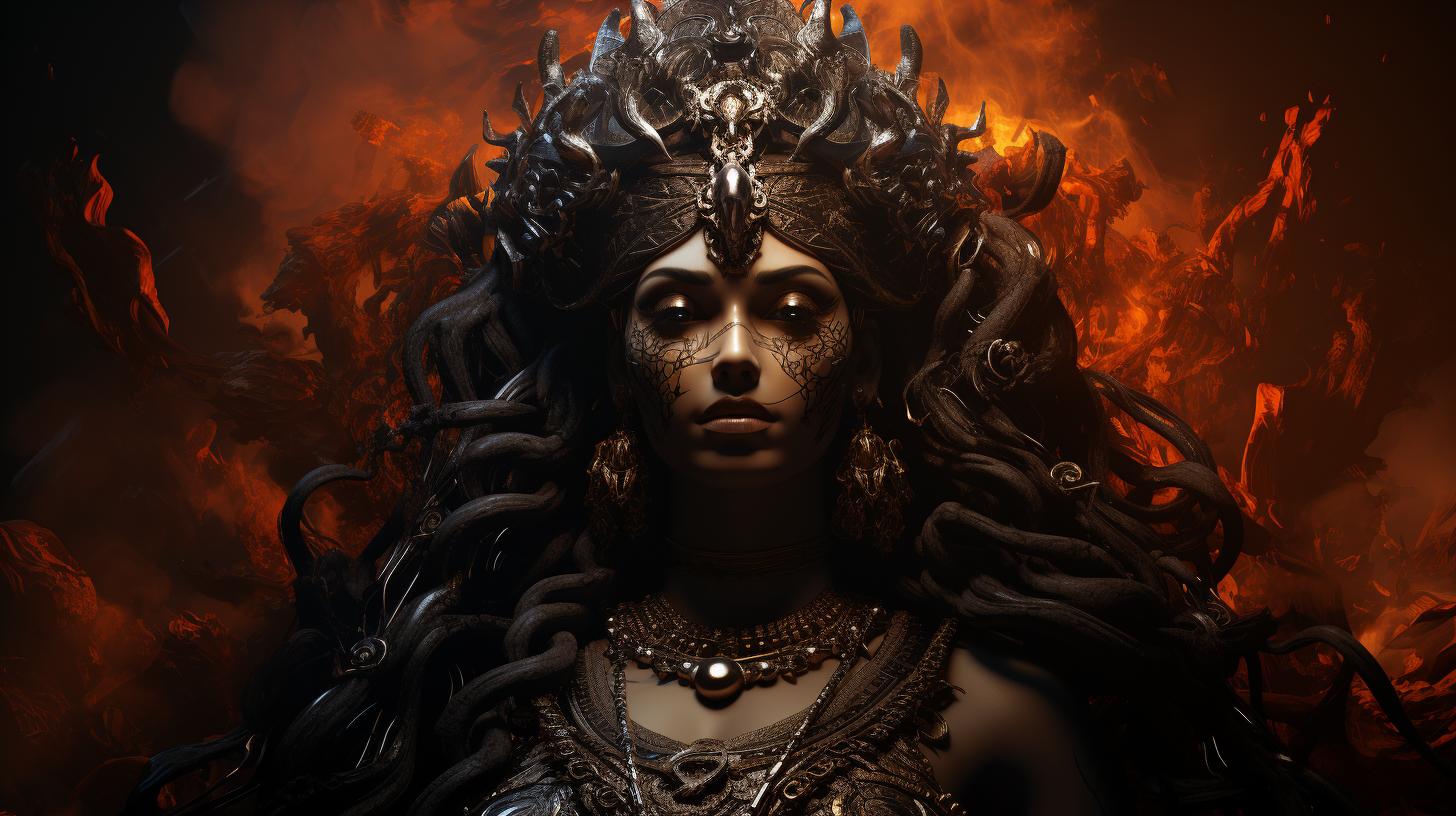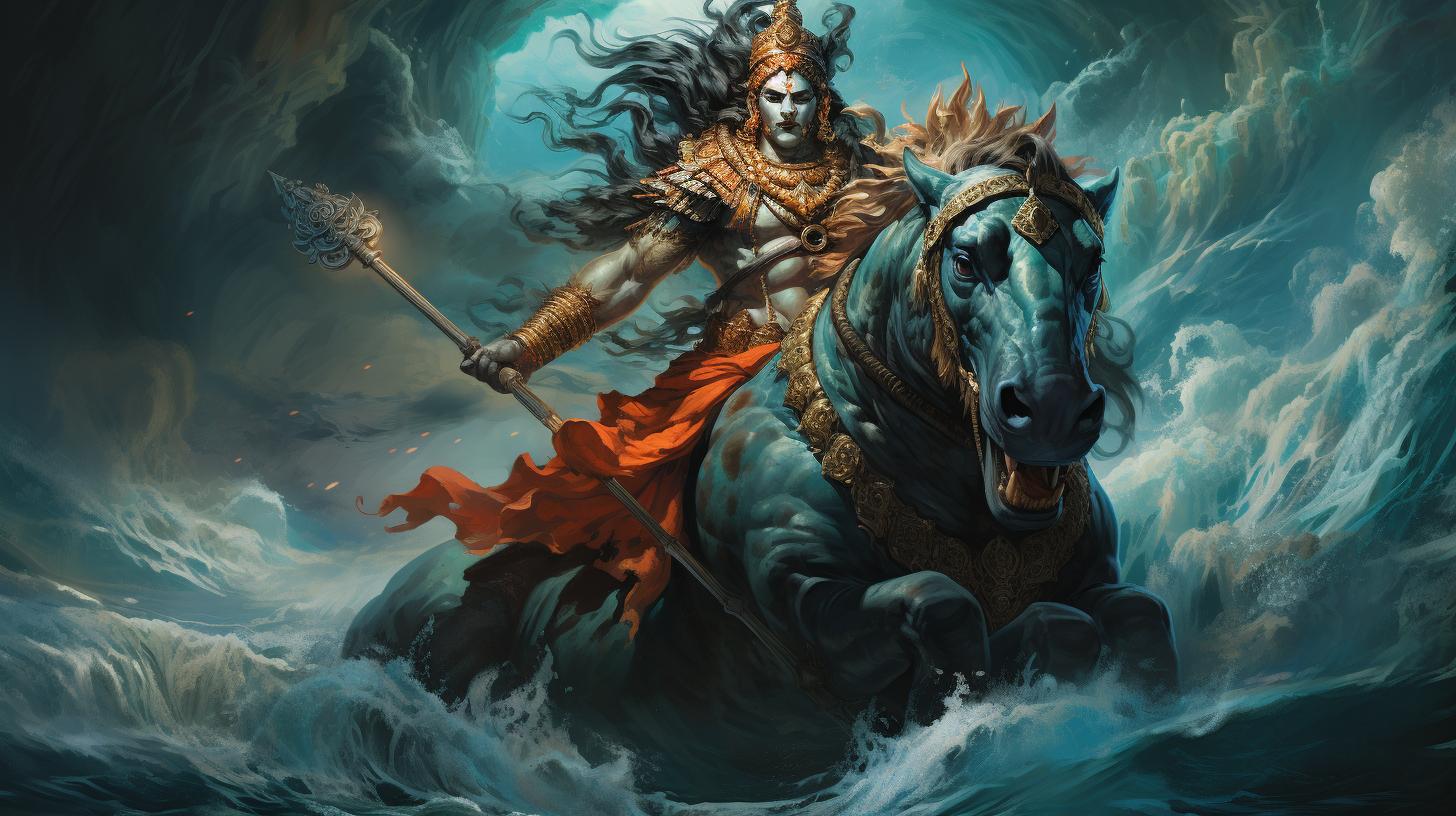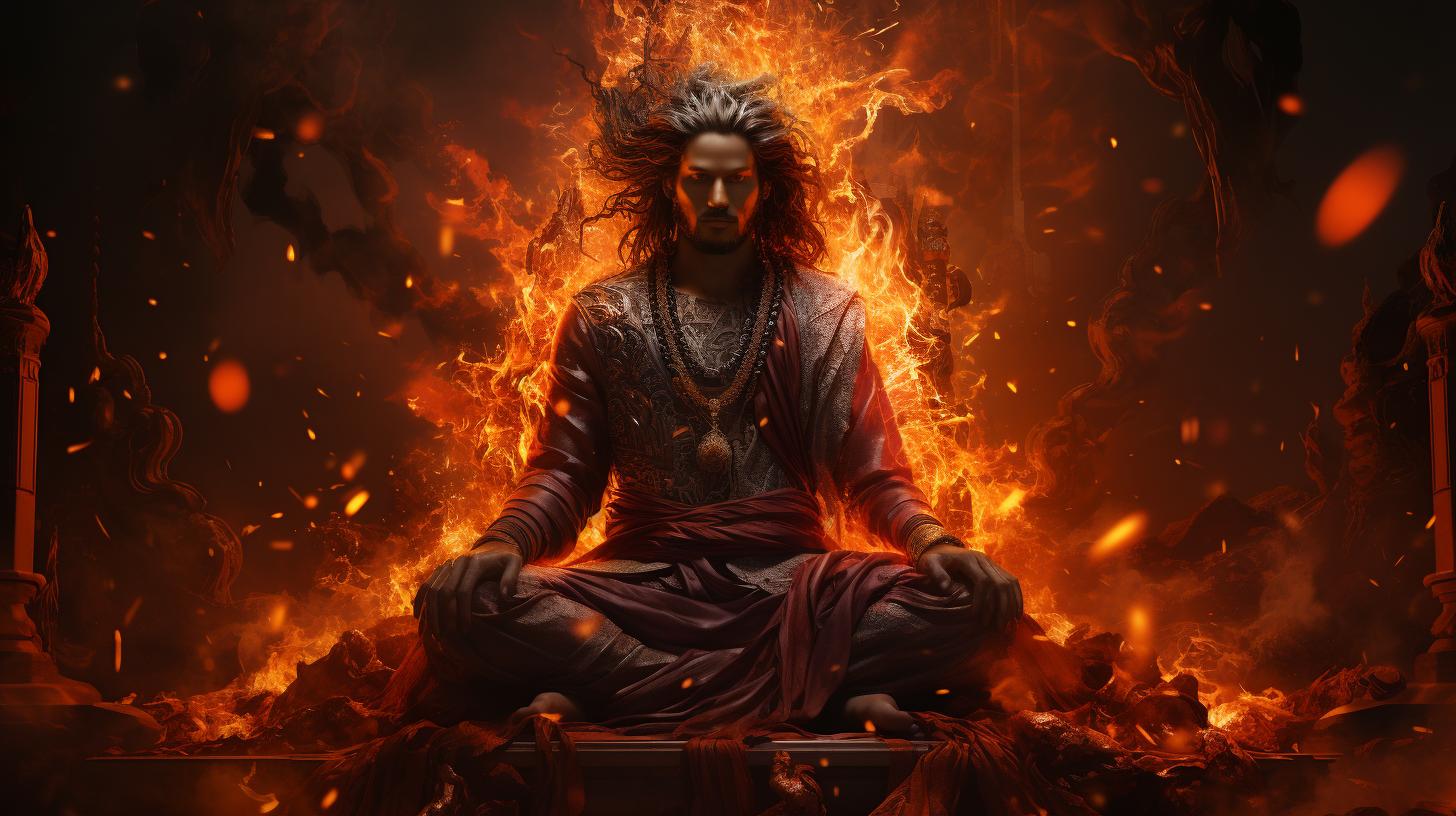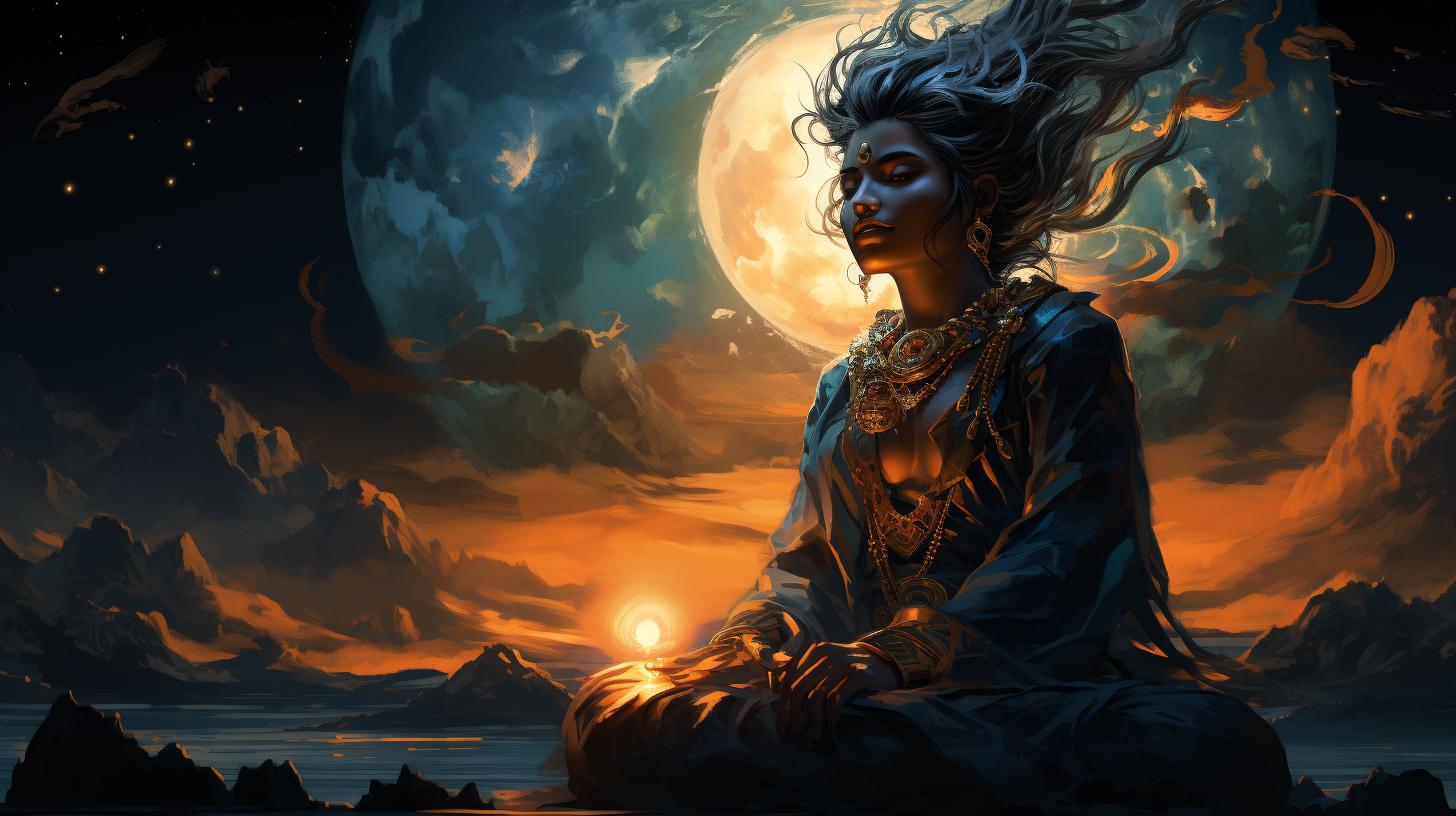Indra vs Zeus: Clash of the Mighty Gods in the Ultimate Battle
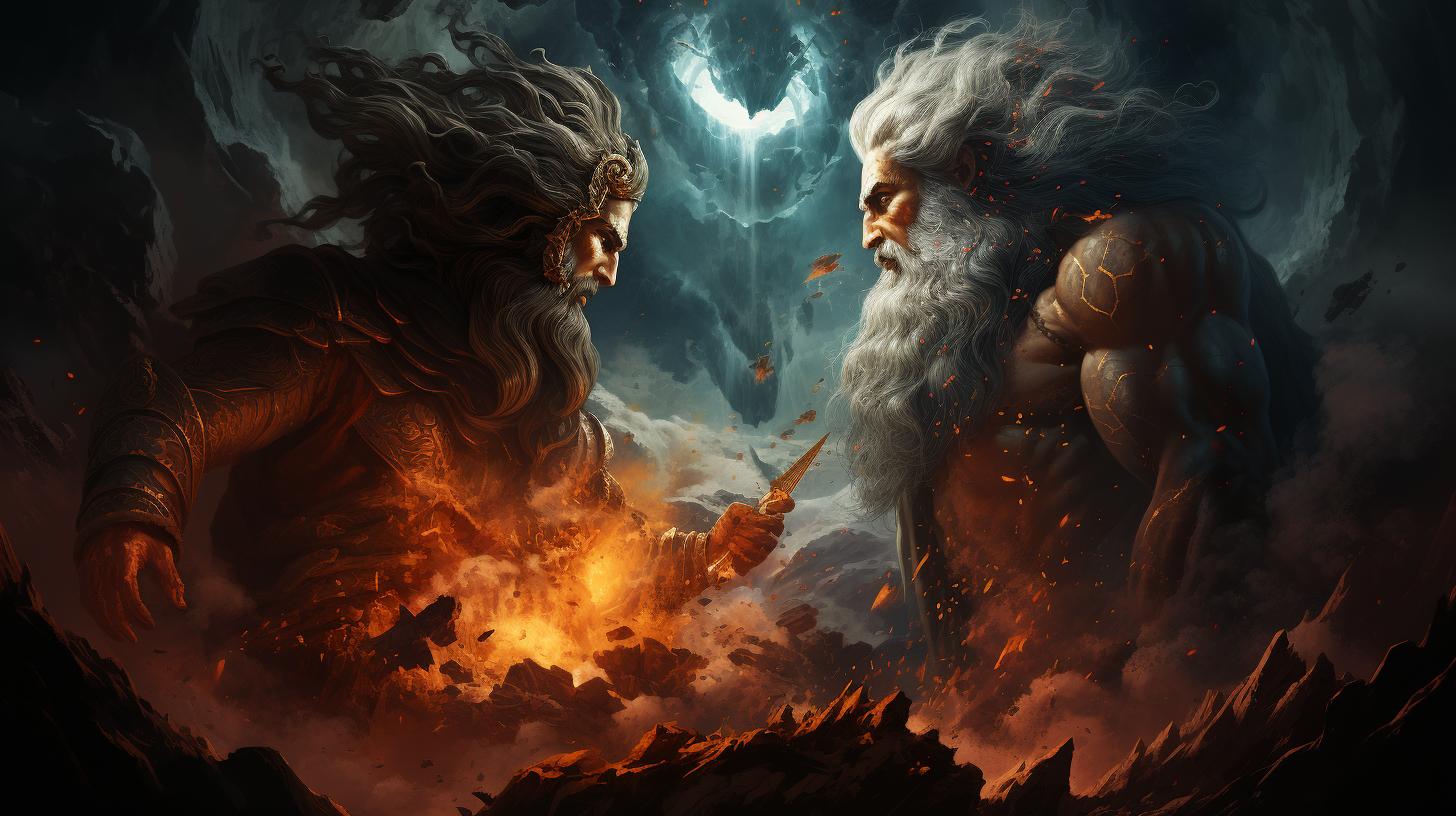
Indra and Zeus, two mighty gods from Hindu and Greek mythology respectively, have always intrigued scholars and enthusiasts alike. Their striking similarities, such as their roles as god-kings and associations with rain and thunder, have sparked debates about their powers and attributes.
With Indra’s powerful divine weapons and Zeus’ thunderbolt and lightning, the stage is set for an epic faceoff. Join us as we delve into the origins, historic context, legendary battles, and cultural impact of Indra and Zeus, uncovering the intriguing tales of these awe-inspiring deities.
The Origins of Indra and Zeus
Indra and Zeus, two powerful deities from ancient mythologies, have captivated the imaginations of people for centuries. In this section, we will delve into the origins of these extraordinary gods, exploring their roles in their respective mythological traditions and shedding light on their fascinating beginnings.
Indra in Hindu Mythology
In Hindu mythology, Indra holds great significance as the king of the gods in the ancient Indian pantheon. He is often depicted as a warrior god, adorned with a magnificent crown and wielding powerful weapons.
Indra’s origins can be traced back to the early Vedic period, where he emerged as a prominent deity associated with thunder, rain, and fertility. As a major figure in Hinduism, Indra is praised for his strength, courage, and divine attributes.
Zeus in Greek Mythology
In Greek mythology, Zeus reigns supreme as the king of the Olympic gods. His domain encompasses the heavens and the earth, and his power is often symbolized by lightning bolts.
Zeus is said to have originated from ancient Greek religious traditions, with his character evolving over time to become the central figure in the Greek pantheon. He is renowned for his strength, wisdom, and rule over the natural world.
The tales of Indra and Zeus reveal the intricate tapestry of ancient mythologies. Exploring their origins provides valuable insights into the cultural and religious beliefs of the people who worshipped them.
As we delve further into the powers, attributes, and adventures of these legendary gods, we unravel a captivating narrative that continues to intrigue and inspire us even in the modern era.
In the realm of divine power, both Indra and Zeus possess extraordinary abilities that showcase their status as mighty gods. This section delves into the specific powers and attributes associated with each deity.
Indra’s Divine Weapons
Indra, the king of gods in Hindu mythology, wields formidable divine weapons that exemplify his strength and prowess. One such weapon is the Vajra, a thunderbolt-like weapon that symbolizes his control over lightning and thunderstorms.
With the Vajra in hand, Indra can unleash devastating strikes and overpower his adversaries.
Another powerful weapon in Indra’s arsenal is the Vasavi Shakti, a spear of tremendous destructive power.
Legend has it that Indra received this weapon as a boon from the gods and can deploy it with deadly precision, shattering any obstacles in his path.
Zeus’ Thunderbolt and Lightning
Similarly, Zeus, the formidable king of gods in Greek mythology, possesses awe-inspiring powers associated with thunder and lightning.
His iconic weapon is the thunderbolt, a symbol of his authority over the skies. This divine weapon, forged by the Cyclopes, allows Zeus to hurl bolts of lightning with extraordinary precision, obliterating anything in their path.
Furthermore, Zeus commands the elemental forces of nature, using lightning as a manifestation of his power. The sheer force and destructive capabilities of Zeus’ lightning strikes inspire both fear and reverence among mortals and immortals alike.
Through their divine weapons and control over natural forces, both Indra and Zeus demonstrate their supremacy and the magnitude of their powers.
Similarities and Differences between Indra and Zeus
In their respective mythologies, Indra and Zeus share striking similarities as god-kings associated with rain and thunder.
Let’s delve into their roles as god-kings and their associations with rain and thunder to examine the commonalities and differences between these awe-inspiring deities.
Their Roles as God-Kings
Indra, known as the king of gods in Hindu mythology, holds dominion over the heavens and the weather. He governs thunder, lightning, and rainfall, embodying the power and authority of the divine ruler.
Similarly, Zeus, the king of gods in Greek mythology, reigns over the skies and is also closely associated with controlling thunder, lightning, and rain. As the chief deity in the Greek pantheon, Zeus wields immense power and serves as the ultimate authority among the gods.
Indra and Zeus both have strong associations with rain, which is crucial for sustenance and fertility. Indra is revered as the god of rain and storms, responsible for wielding thunderbolts and bringing forth life-giving rain to the earth.
Zeus, too, is closely linked to rain and thunder. His thunderbolt, a potent weapon, symbolizes his control over the skies and his ability to unleash thunder and lightning upon the world.
Rainfall is believed to be a manifestation of his power and divine intervention.
While the roles of Indra and Zeus as god-kings and their associations with rain and thunder align closely, there are distinct cultural and mythological differences that shape their individual personas.
Exploring these distinctions adds depth to our understanding of these mighty gods.
Indra and Zeus in Historical Context
Cultural Significance of Indra in Hinduism
Indra holds immense cultural significance in Hinduism, being revered as the king of gods and the ruler of the heavens. He is associated with power, aggression, and fertility. In Hindu mythology, Indra is a prominent figure in various epics, particularly the Rigveda.
He is often depicted as a warrior, leading the gods in battles against demons and protecting humanity from evil forces. Indra’s portrayal reflects the societal values of ancient India, emphasizing bravery, leadership, and divine protection.
Zeus’ Influence on Greek Society
Zeus, the prominent figure in Greek mythology, exerted a profound influence on ancient Greek society. As the king of the gods, Zeus embodied ideals such as justice, order, and authority.
The concept of “Zeus’ justice” served as a moral compass for Greeks, shaping their legal system and societal norms. Temples dedicated to Zeus stood as impressive structures symbolizing the deity’s importance in everyday life.
The worship of Zeus was an essential part of Greek religious practices, reflecting their devotion to divine power and divine intervention.
The societal impact of Indra and Zeus extends beyond religion, as their characteristics and legends influenced the cultural, artistic, and philosophical development of their respective civilizations. Exploring the historical context helps shed light on the ways in which these gods were elevated to central figures in the belief systems of their societies.
Legendary Battles and Mythological Feats
In the rich tapestry of myths and legends, both Indra and Zeus have left a profound mark with their awe-inspiring battles and extraordinary feats. Let us delve into the thrilling tales of their legendary confrontations and triumphs.
Indra’s Defeat of Vritra and Other Victories
Indra’s most renowned feat was his epic battle against the fearsome demon Vritra. Armed with his mighty weapon, the Vajra, he vanquished the creature, liberating the rivers that Vritra had bound.
This heroic triumph established Indra’s reputation as the slayer of the most formidable adversaries.
Furthermore, Indra’s saga includes numerous other victorious exploits, such as his battles against the Asuras and the demon Namuci.
With his indomitable spirit and divine arsenal, Indra valiantly defended the gods and maintained cosmic order in the face of relentless challenges.
Zeus’ Battles against Titans and Giants
Zeus, too, etched his name in the annals of mythological battles. His greatest struggle manifested in the Titanomachy, a war against the primordial Titans who sought to overthrow the Olympian gods.
With his thunderbolt in hand, Zeus led the charge, ultimately vanquishing the Titans and establishing the reign of the new divine order.
Beyond the Titanomachy, Zeus also engaged in fierce confrontations with other formidable adversaries, including the monstrous giants who threatened to bring chaos and destruction to the world.
It was through his strategic prowess and formidable lightning bolts that Zeus emerged victorious time and again, shaping the very fabric of the cosmos.
These legendary clashes between Indra and Zeus demonstrate their incredible might and valor, as well as their pivotal roles in shaping the mythological landscapes of their respective cultures.
Indra vs Zeus: The Ultimate Faceoff
The clash between Indra and Zeus, two mighty gods of Hindu and Greek mythology, promises an epic confrontation of unimaginable proportions. Their powers, strengths, and abilities are unparalleled, establishing them as formidable opponents in a battle for supremacy.
Comparing the Strength and Powers of the Gods
Indra, wielding his powerful divine weapons, such as the Vajra, showcases his dominance over the forces of nature. His command over thunder and lightning is awe-inspiring, capable of unleashing devastation upon his enemies.
Zeus, on the other hand, possesses the thunderbolt and lightning, symbolizing his authority over the heavens and his ability to bring forth storms of unparalleled might.
Both gods exhibit immense strength and prowess in their respective mythologies.
Indra’s feats of defeating formidable foes like Vritra and other legendary victories solidify his position as a formidable warrior. Zeus, too, demonstrates his prowess by intensely battling against Titans and Giants, emerging victorious in countless encounters.
Speculations on a Hypothetical Battle
While the concept of an actual battle between Indra and Zeus may remain confined to the realms of myth and imagination, one cannot help but wonder about the outcome of such a clash.
Theories and debates surrounding this hypothetical encounter run rampant, with enthusiasts from both mythologies contemplating the possible victor.
It is intriguing to ponder the impact of their diverse powers and strategies in a conflict of cosmic proportions.
Indra’s arsenal of divine weapons and Zeus’ control over natural elements create an atmosphere of uncertainty, leaving no definitive answer as to who would emerge triumphant. Each deity’s unique abilities, honed through centuries of mythological lore, could fuel an equivalent resistance, resulting in an evenly matched and breathtaking spectacle.
As we delve into the realm of Indra vs Zeus, we find ourselves immersed in a world where immortals clash, divine weapons clash, and thunderous roars echo through the heavens.
The ultimate faceoff between these god-kings leaves us captivated by the sheer spectacle of their powers entwined in a battle that transcends mortal comprehension. A testament to the enduring allure of mythology and the boundless realms of imagination.
Cultural Impact and Reverence for Indra and Zeus
Indra’s Place in Indian Religions and Traditions
Indra holds a prominent position in Indian religions and traditions, particularly in Hinduism. Revered as the king of gods and the god of thunder, rain, and war, Indra symbolizes power and protection.
In Hindu mythology, Indra’s exploits, such as his defeat of the demon Vritra, are celebrated in ancient texts like the Rigveda. Additionally, Indra is a central figure in religious rituals and festivals, where worshippers seek his blessings for prosperity and fertility.
Zeus’ Presence in Western Literature and Art
Zeus, the mighty god of the Greek pantheon, has also left an indelible mark on Western literature and art. From ancient epic poems like Homer’s Iliad and Odyssey to the plays of renowned Greek playwrights like Aeschylus and Euripides, Zeus appears as a powerful and complex deity who influences human destinies.
Throughout history, artists have depicted Zeus in sculptures, paintings, and other forms of artistic expression, showcasing his regal stature and authority. Even today, Zeus continues to inspire creativity and imagination in various forms of media, including literature, film, and television.
..











